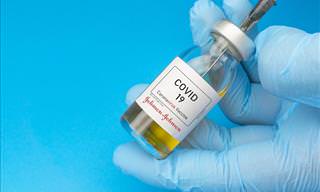There is still no cure or a vaccine against COVID-19, but as scientists and health experts race to find a solution to the pandemic, there is one anti-viral drug that got a lot of attention in the last few days. It is likely you have heard the name Remdesivir, an anti-viral agent manufactured by the American biotech firm Gilead Sciences. It was originally developed in 2015 to fight Ebola, but unfortunately was found ineffective and subsequently shelved. Despite this initial failure, remdesivir was later shown to be effective against both SARS and MERS, and it is now being tested in new clinical trials as a potential treatment for Covid-19.
Early results of a federal study that were released on Wednesday indicate that remdesivir does speed up the recovery of Covid-19 patients, and this subsequently caused a wave of cautious optimism within the health authorities. Here’s an overview of everything that is known about remdesivir and how it works.
How Remdesivir Works
When the novel coronavirus infects one of our cells, it goes on to replicate itself over and over again and thus spreads the infections throughout the body. That is why COVID-19 could start with a mere sore throat and end up in our lungs. The more a virus replicates, the worse the damage of the infection becomes.
What remdesivir does is prevent the virus from making copies of itself, by directly attacking its RNA and the specific enzyme that allows the virus to replicate. “You’re decreasing the degree of infection so the immune system can fight. It’s like taking fuel away from the fire,” an explanation given to USA Today by Dr. John Scott, chair of the department of pharmacology at the University of Washington School of Medicine.
Related Article: You Should Be Mindful of These Odd COVID-19 Symptoms
The Reaction of Covid-19 Patients to Remdesivir
Initially, remdesivir was brushed off as a last resort compassionate treatment for those with a severe case of Covid-19. The first reported case of the disease in the US was of a 35-year-old man who had returned from a visit to Wuhan, China in early January. Six days after he was admitted to the hospital, his symptoms worsened significantly, and he developed severe pneumonia that required supplemental oxygen to survive. Eventually, the man’s doctor received permission to try compassionate treatment with remdesivir, and within just one day, a dramatic improvement was recorded in the patient’s condition.
A Chicago hospital has been conducting a closely watched clinical trial, testing remdesivir on severe COVID-19 patients, and reported promising results - “rapid recoveries in fever and respiratory symptoms, with nearly all patients discharged in less than a week," according to Stat News.
And finally, the early results of the federal study revealed that the experimental drug shortened the span of patients’ illnesses by about 31%, compared to those who took a placebo. Moreover, patients treated with remdesivir took 11 days on average to recover, while those who did not receive the drug needed 15 days to regain their health. Reducing patient’s hospital stay by 4 days is a significant achievement, as every day in the intensive care counts, according to Aruna Subramanian, a clinical professor of infectious disease and co-principal investigator of the Gilead trials at Stanford.
Dr. Anthony Fauci himself even compared the discovery of remdesivir to that of AZT, the medication that proved crucial in the treatment of AIDS. “When I was looking at this data with our team the other night, it was reminiscent of 34 years ago, in 1986, when we were struggling for drugs for HIV, and we had nothing,” Fauci said.
Further Study Is Much Needed
While this is a potentially positive breakthrough, it is important to stress that remdesivir is a treatment, not a cure. There is no known cure for any coronavirus — not COVID-19, not SARS or MERS, nor the other four coronaviruses that cause the common cold.
Rather, remdesivir can be used as adjunctive therapy to help severe patients recover quicker, shorten their stay at the hospital, and minimize their dependency on ventilators and oxygen supplies. "Remdesivir appears not to be a magic bullet,” Dr. Michele Barry, an infectious disease expert at Stanford, told the New York Times.
Furthermore, additional research is desperately needed. Experts have pointed out that drawing conclusions at this stage is premature, as the scope of the existing research is not wide enough and not consistent. Clinical trials are already underway in China, however, the results are yet to be published.
Eventually, researchers will also need to analyze the data and map out the best way to use remdesivir, in order to figure out when it is best to start the treatment, what groups of patients may be worse off without treatment and where the drug can make the biggest impact.
While any breakthrough in the fight against COVID-19 is hopeful and exciting, it seems that we need to stay patient and follow future developments.
 Go to BabaMail
Go to BabaMail


























